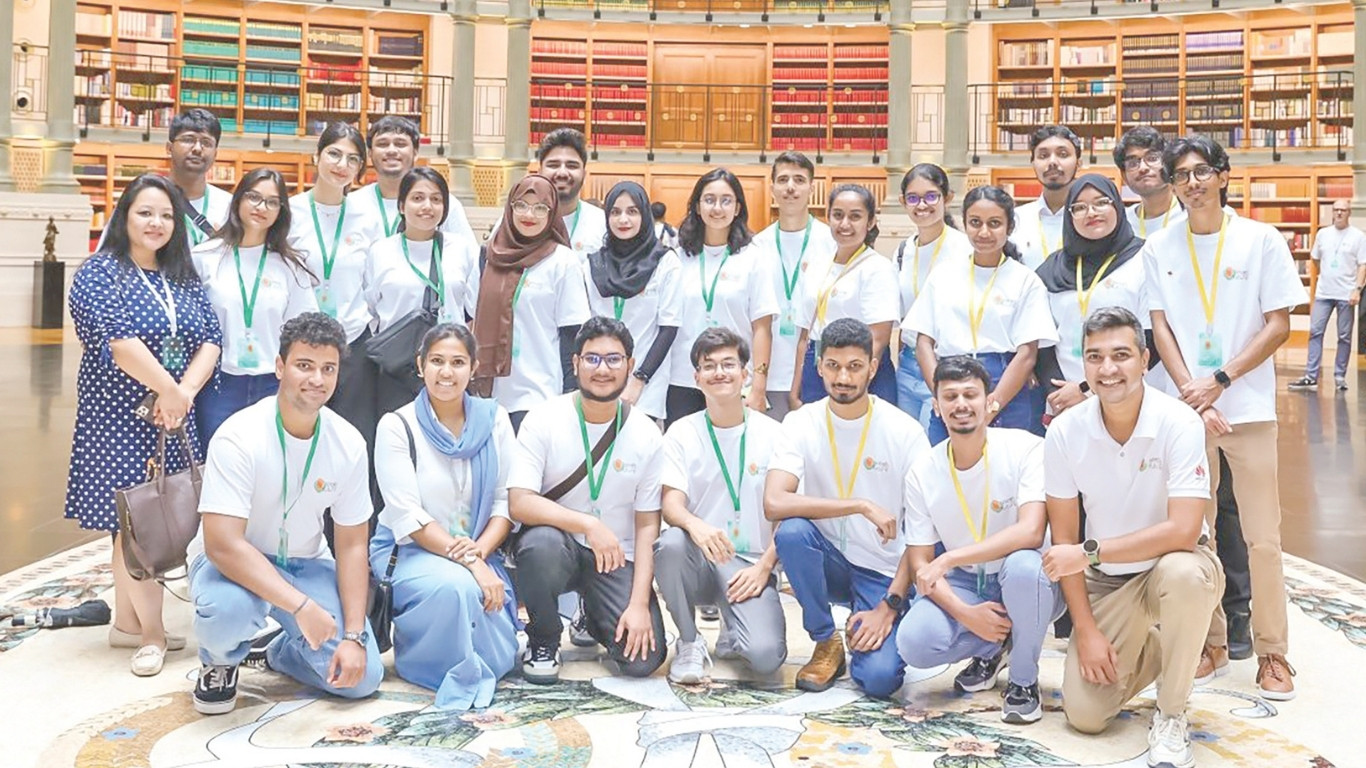Bangladeshi students gain first-hand ICT insights at Huawei HQ
Students gain first-hand exposure to next-gen technologies and global networking, preparing to drive the nation’s digital transformation
Suman Saha, Dhaka
Published: 30 Sep 2025

Photo: Courtesy
Eight Bangladeshi students have returned home after completing Huawei’s flagship talent initiative, Seeds for the Future 2025, which took them to the company’s headquarters in Shenzhen and training facilities in Dongguan, China.
The programme offered participants hands-on exposure to emerging technologies, including 5G, artificial intelligence (AI), cloud computing, and smart city innovations.
Since its introduction in Bangladesh in 2014, Seeds for the Future has been organised 12 times, producing a pool of young ICT ambassadors to support the nation’s digital transformation.
Globally, nearly 19,000 students across the Asia-Pacific have taken part, while Huawei plans to train another 6,000 in Bangladesh through its talent development initiatives over the next year.
Tanvir Ahmed, head of external communications at Huawei South Asia, said, “It is not just a competition, but a valuable journey where our students gain advanced ICT and telecom knowledge, whether in Bangladesh or abroad.”
He added that in such global gatherings, Bangladeshi students consistently stand out with their performance and participation. They also get the chance to build impactful networks.
Learning beyond the classroom
For Md Rezwan Ullah of BUET, the experience was transformative.
“At Huawei HQ, I realised technology isn’t just theory – it’s powering healthcare, smart cities, and digital ecosystems worldwide. Seeing AI and cloud in real-world use showed me that vision and responsibility must go hand in hand with innovation,” he said.
Speaking to Daily Sun, Rezwan highlighted training sessions at Huawei’s Songshan Lake campus, which deepened his understanding of cloud computing and AI. “Cloud is not just storage but the backbone of global connectivity. AI, when applied responsibly, becomes a decision-making partner,” he noted.
He also reflected on visiting Huawei’s cultural campus, Xi Liu Bei Po Village. “It blended heritage with innovation, showing how tradition and progress can coexist – much like Huawei’s role in balancing technology with responsibility,” he added.
Global exposure and collaboration
For Tasnia Iffat, a computer science student at Dhaka University, the programme offered a glimpse into the future of ICT.
“The sessions on AI and large language models aligned closely with my academic focus. Meeting global experts gave me confidence that our skills can contribute to Bangladesh’s digital future,” she said.
Tasnia also valued the cross-cultural exchange. “Students from 10 countries shared ideas through their own cultural and academic perspectives. These connections are perhaps my biggest takeaway – they will help me bring international insights back to Bangladesh’s ICT sector.”
Practical lessons for Bangladesh
The team was particularly impressed by a visit to the Longgang Smart Government Center, where Huawei’s solutions support public services through AI, IoT, and big data.
Tasnia noted one example: “An AI system monitors dustbins to ensure timely collection. It’s simple but impactful. Dhaka could benefit greatly from such solutions in waste management, traffic control, and law enforcement. Rural areas could adopt IoT for agriculture and healthcare.”
Investing in future leaders
Seeds for the Future emphasises not only technical knowledge but also leadership, adaptability, and global vision.
Combining hands-on training, cultural exchange, and mentorship, it prepares young professionals to take on challenges in a fast-evolving ICT sector.
Both Rezwan and Tasnia agreed the programme gave them something classrooms cannot.
“Seeds is not just about knowledge transfer; it’s about confidence, collaboration, and seeing yourself as part of a global ICT community,” Rezwan summed up.
____________________________________________
The writer can be reached at: [email protected]
Edited by: Anayetur Rahaman

